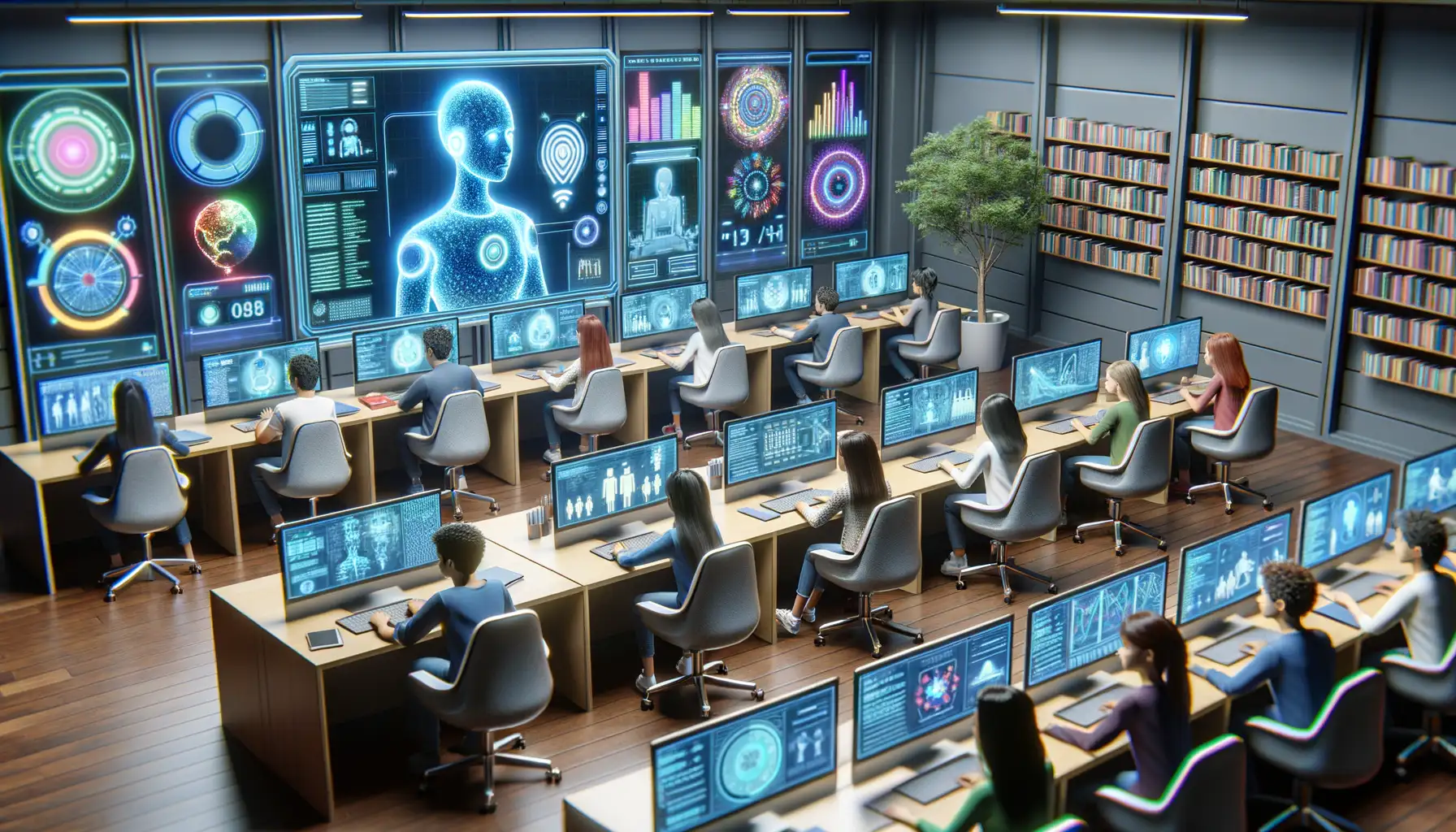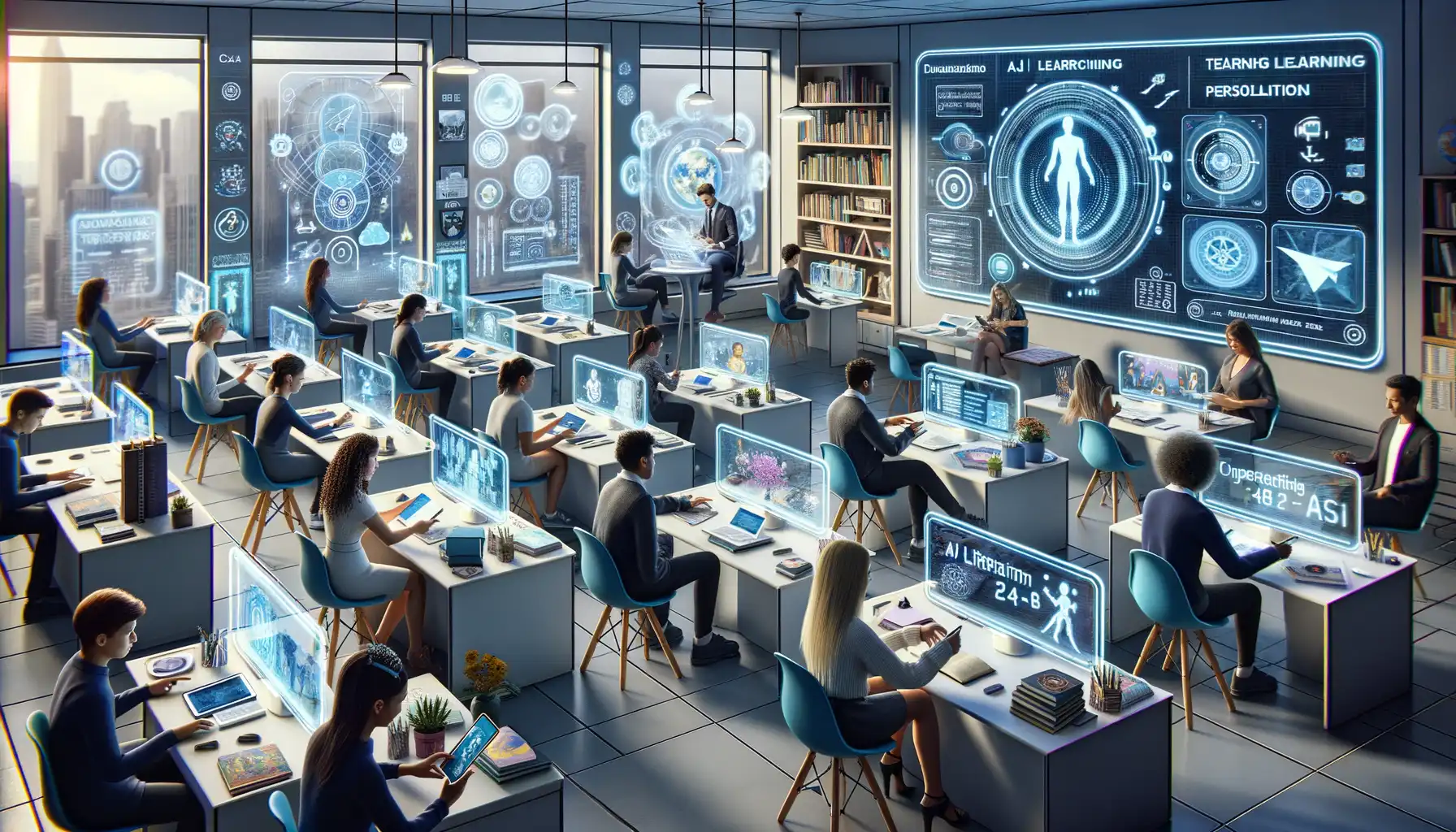Introduction to AI in Personalized Learning
Reinventing Education with Smart Technology
Imagine having a teacher who knows you inside and out—not just your strengths but also those tricky areas where you struggle. That’s what Artificial Intelligence (AI) does in personalized learning. AI transforms education from a one-size-fits-all model into something tailored specifically for *you*.
With AI-driven apps, learning becomes less of a chore and more of an adventure. These tools analyze your behavior, track your progress, and adapt in real time. Stuck on fractions? AI notices and slows down to offer extra guidance. A whiz at grammar? It speeds up, skipping redundant lessons. This isn’t generic software; it’s like having a mentor who remembers everything about you.
Say goodbye to classroom anxiety. AI doesn’t judge if you ask the same question five times—it tailors its response every time. Whatever your pace, whatever your style, these tools meet you there. Isn’t that the future we dreamed of as kids? Turns out, it’s here now, and it fits in your pocket!
Key Benefits of AI in Educational Apps

Revolutionizing Learning with Personalized Experiences
Imagine an app that feels like it truly *knows* you—your strengths, your challenges, and even how you prefer to learn. That’s the magic of AI in educational apps! By analyzing your progress and behavior, AI can create a learning journey that’s as tailored as a suit made just for you. Struggling with algebra? The app might suggest bite-sized video lessons or gamified quizzes to make the subject click. Already acing vocabulary? It will move you forward, ensuring your time isn’t wasted. It’s like having the most understanding teacher in your pocket.
Top Benefits You’ll Absolutely Love
- 24/7 Accessibility: Learn anytime, anywhere. No need to wait for office hours or class schedules—AI is always ready when you are.
- Interactive Feedback: Forget vague grades; AI provides actionable, real-time insights to help you improve. Think of it as a coach cheering you on!
- Diverse Learning Styles: Whether you’re a visual learner or thrive on hands-on activities, AI adapts the content to match your unique style.
- Stress-Free Testing: Say goodbye to high-pressure exams! AI offers low-stakes assessments that adjust to your pace, keeping anxiety at bay.
These apps are designed to *grow* with you, constantly refining their approach to ensure you’re always engaged and never overwhelmed. They aren’t just tools—they’re companions on your educational adventure.
How AI Enhances Learning Personalization

The Magic of Tailored Learning Journeys
Imagine sitting down to learn something new, and instead of being handed the same material as everyone else, you’re given exactly what you need – not too easy, not too hard. That’s the gift that AI-driven personalization brings to education, turning a one-size-fits-all approach into a bespoke experience.
With AI, apps can analyze individual learning patterns, stumbling blocks, and even how fast or slow you prefer to go. Have you ever skipped over an already-familiar topic in frustration? Thanks to intelligent algorithms, those days could be behind you. AI not only adapts in real-time but also predicts what you might need help with next.
- Struggling with fractions? AI can push content like interactive puzzles to make it click.
- Acing Spanish verbs? It knows when to dial up the challenge so you don’t get bored.
These virtual tutors craft an experience that feels like it’s truly yours. They don’t just teach – they listen, adjust, and respond, mimicking the attentiveness of a great teacher who’s always paying attention to YOU.
Turning Data Into Lifelong Confidence
Behind the scenes, AI gathers insights from your progress, like breadcrumbs left on a trail. But this isn’t about surveillance. No, it’s about creating confidence! When learners see steady growth, personalized feedback, and goals that feel within reach, it transforms their relationship with education.
Let’s take a real-world example: apps like Duolingo don’t just give you random vocabulary drills. They track your weak spots—like forgetting “el gato” means cat—and nudge you toward mastery. Similarly, math platforms like Khan Academy use predictive models to reveal what topics you’re ready to tackle next, reducing frustration and building wins over time.
It’s like having a mentor who’s always present, guiding you gently but firmly toward becoming the very best version of yourself.
Challenges and Considerations in AI-Driven Education

Balancing Innovation with Privacy Concerns
Picture this: an educational app that knows exactly what you struggle with in math or where your reading comprehension falters. Sounds magical, right? But here’s the flip side—how much of your personal data does that app need to create such a tailored experience? Data privacy and security loom large in AI-driven education.
Educational apps powered by AI often collect sensitive details like students’ progress, cognitive patterns, and even emotional responses. While this helps craft personalized learning, it also opens doors to potential misuse. Cybersecurity breaches are a harsh reality, and the idea of a student’s data being exposed online is enough to make any parent—or school—hesitate.
Consider this simple yet crucial question: how much is too much when it comes to sharing data for better learning outcomes? Navigating this boundary requires vigilance, robust ethical guidelines, and constant innovation in cybersecurity measures.
Can AI Ever Replace the Human Touch?
A chatbot may be quick with answers, but can it offer a warm smile after a tough test? Probably not. One of the trickiest challenges is ensuring that AI complements rather than replaces human educators.
- Students thrive on empathy, encouragement, and connection—things algorithms can’t replicate.
- There’s also the risk of over-reliance: will learners miss out on valuable problem-solving skills if an AI spoon-feeds them answers?
Striking a balance between technology and humanity is no walk in the park. Educators need to be mentors, cheerleaders, and sometimes magicians—roles that no AI, no matter how advanced, can fully emulate. So yes, while AI sparks innovation, we must tread carefully to hold onto what makes education truly transformative: the human touch.
Future Trends in AI for Personalized Learning

The Rise of AI-Driven Learning Companions
Imagine an app that feels like it truly knows you—not just your favorite subjects, but also when you’re most focused, where you struggle, and even how to motivate you. Sounds futuristic? Well, that future is closer than you think, thanks to the evolution of AI-powered educational tools.
One emerging trend is the development of adaptive AI companions, almost like a digital mentor built into learning apps. These go beyond simply tailoring content—they analyze your reactions, track your emotional engagement (yes, through tech like sentiment analysis!), and adjust not just what you learn, but *how* you learn. Think of it as the fusion of cognitive science and technology, giving students a truly humanized experience.
- Hyper-personalized lesson plans powered by real-time data
- Interactive chatbots that evolve based on individual learning journeys
- Advanced gamification techniques tuned to each user’s pace and interests
Shaping the Next-Generation Classroom
Beyond apps, AI is poised to transform the classroom itself. We’re talking about virtual teachers equipped with natural language processing to explain concepts in relatable, engaging ways. Picture an AI tutor who not only remembers what you got wrong last week, but also recognizes *why* and adjusts its methods to help you grasp it better. Exciting, right?
And let’s not forget the growing role of predictive analytics. Soon, educators might rely on these tools to pinpoint learning gaps before they appear, creating opportunities for intervention that feel invisible—like having a safety net beneath every student’s progress. The future isn’t just bright; it’s deeply personal.
